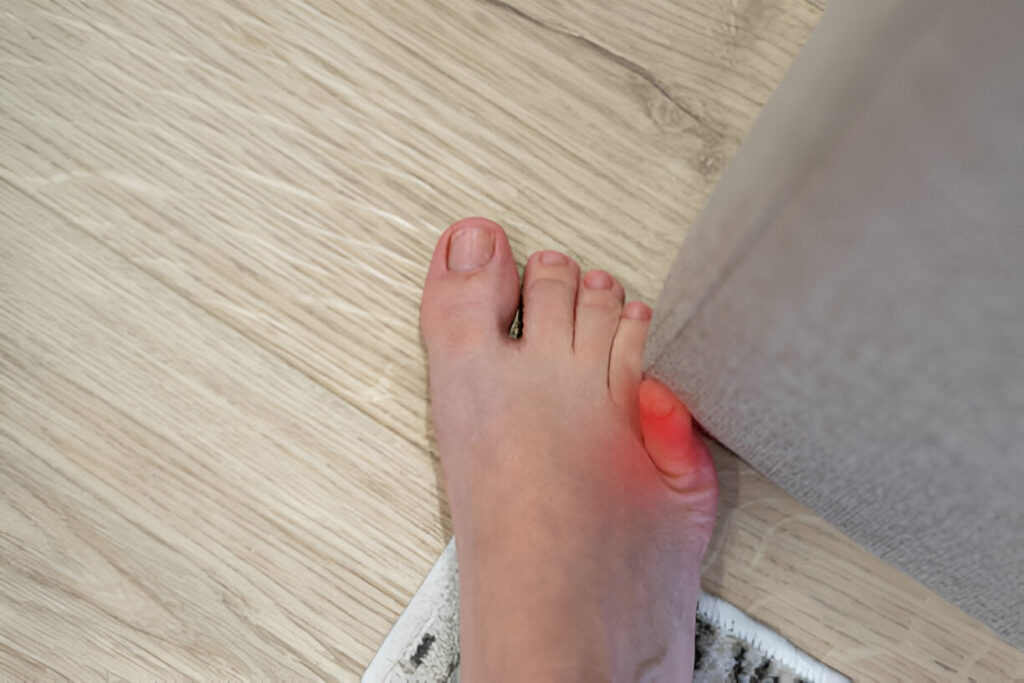Chronic foot pain can significantly impact your daily life, making it difficult to perform even simple tasks. Whether it stems from an injury, medical condition, or poor footwear, managing this pain effectively is crucial for maintaining mobility and quality of life. Here are some strategies to help you handle chronic foot pain and find relief.
Understanding the Causes of Chronic Foot Pain
Chronic foot pain can be caused by various factors, including injuries, overuse, and underlying medical conditions. Common causes include plantar fasciitis, arthritis, bunions, and nerve damage. Each condition has its own set of symptoms and treatment options, so it’s important to get an accurate diagnosis from a healthcare professional. Injuries such as sprains, fractures, and strains can lead to long-term pain if not properly treated. Overuse injuries, often seen in athletes or individuals with physically demanding jobs, can also contribute to chronic discomfort. Understanding the specific cause of your foot pain is the first step toward finding effective treatment and relief. Medical conditions such as diabetes can also lead to chronic foot pain due to nerve damage and poor circulation. In such cases, managing the underlying condition is essential to alleviating foot pain. Consulting with the best podiatrist in NYC or a city near you can provide you with a comprehensive diagnosis and personalized treatment plan tailored to your specific needs.
Seeking Professional Help
When dealing with chronic foot pain, seeking professional medical advice is essential. A podiatrist, a specialist in foot and ankle health, can provide a thorough examination and recommend appropriate treatments. They may use diagnostic tools such as X-rays, MRI, or ultrasound to identify the root cause of your pain. Treatment options vary depending on the diagnosis but may include physical therapy, medications, orthotics, and in some cases, surgery. Physical therapy can help strengthen the muscles and improve flexibility, reducing pain and preventing future injuries. Medications such as anti-inflammatory drugs can help manage pain and swelling. Orthotics, custom-made shoe inserts, can provide support and alleviate pressure on painful areas. In severe cases, surgical intervention may be necessary to correct structural problems or remove damaged tissue. Working with a skilled podiatrist ensures you receive the best care and most effective treatment for your condition.
Implementing Lifestyle Changes
In addition to medical treatments, making lifestyle changes can significantly impact your ability to manage chronic foot pain. Maintaining a healthy weight can reduce the pressure on your feet, alleviating pain and preventing further damage. Incorporating regular low-impact exercises such as swimming or cycling can help improve strength and flexibility without putting too much strain on your feet. Proper footwear is also crucial in managing foot pain. Shoes with good arch support, cushioning, and a proper fit can prevent further injury and provide relief. Avoid high heels and shoes with narrow-toe boxes, as they can exacerbate foot problems. Investing in quality footwear designed for your specific needs can make a significant difference in your comfort level.
Utilizing Home Remedies and Alternative Therapies
Several home remedies and alternative therapies can complement medical treatments and help manage chronic foot pain. Applying ice packs to the affected area can reduce inflammation and numb the pain. Elevating your feet and taking breaks from prolonged standing or walking can also provide relief. Massage therapy and acupuncture are alternative treatments that have shown promise in managing chronic foot pain. Massage can help reduce muscle tension and improve circulation, while acupuncture may help alleviate pain by targeting specific pressure points. Both therapies can be used in conjunction with traditional treatments for a holistic approach to pain management. Using over-the-counter pain relief creams and gels can provide temporary relief from foot pain. These topical treatments often contain ingredients like menthol or capsaicin, which can help reduce pain and inflammation. Always consult with your healthcare provider before starting any new treatment to ensure it’s safe and appropriate for your condition.
Monitoring and Managing Pain Long-Term
Managing chronic foot pain is an ongoing process that requires regular monitoring and adjustments to your treatment plan. Keeping a pain diary can help you track the severity and frequency of your pain, identify triggers, and evaluate the effectiveness of different treatments. Sharing this information with your healthcare provider can help them adjust your treatment plan as needed. Regular follow-up appointments with your podiatrist are essential to ensure your condition is being effectively managed. They can assess your progress, make necessary adjustments to your treatment plan, and provide additional recommendations for managing pain. Staying proactive in your care and making necessary lifestyle adjustments can help you live a more comfortable and active life. Chronic foot pain can be debilitating, but with the right approach, it can be effectively managed. Understanding the causes, seeking professional help, making lifestyle changes, utilizing home remedies, and monitoring your condition are all crucial steps in handling chronic foot pain. Consulting with a podiatrist will ensure you receive the most comprehensive and personalized care for your needs.



